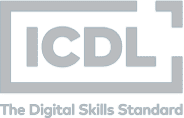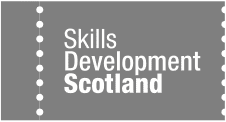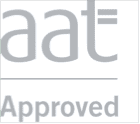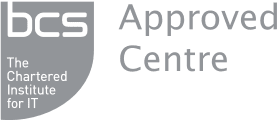
With the average bookkeeping salary in Ireland at €30,500, if you’re looking for a solid career path that doesn’t require a university degree, becoming a bookkeeper could be a great option for you.
Bookkeepers are in charge of keeping track of a company’s financial transactions and making sure they are correct and up-to-date. It’s a crucial role in any business, so it is a career that will always have a healthy demand.
In this article, we’ll look at what bookkeepers do in more detail, the skills you need to excel in the role, and give you a step-by-step guide to starting your own bookkeeping career.
What Does a Bookkeeper Do?
Bookkeeping is an essential function of any business, big or small. The role of a bookkeeper involves recording and maintaining financial transactions, ensuring accuracy and compliance with accounting standards.
These are the main duties and tasks of a qualified Ireland-based bookkeeper:
Recording Transactions
Accurately documenting all financial activities, including sales, expenses, and payroll. Bookkeepers use accounting software to record transactions, ensuring that all entries are complete and accurate.
Reconciling Accounts
Ensuring that all financial transactions recorded in the books match the bank statements, credit card statements, and other financial documents. Reconciliation helps identify any discrepancies and ensures that the financial records are accurate.
Preparing Financial Reports
Bookkeepers use financial data to prepare reports, including balance sheets, income, and cash flow statements. These reports provide businesses with critical information on their financial health, so they can make informed decisions.
Ensuring Compliance With Accounting Standards and Tax Laws.
They keep track of tax deadlines and help businesses file tax returns accurately and on time. They also help find possible tax credits and deductions that businesses can use to lower their tax bills.
Bookkeepers play a crucial role in maintaining accurate and up-to-date financial records. They help businesses make informed decisions by providing critical financial information and ensuring compliance with accounting standards and tax laws.
Bookkeeper vs Accountant
Many people mistakenly believe bookkeepers and accountants do the same job. While both are professionals in the finance industry, their roles and responsibilities differ significantly.

Although they both deal with financial transactions, bookkeepers focus on the day-to-day recording and maintenance of financial transactions, while accountants focus on the analysis and interpretation of financial data to provide strategic advice to businesses.
Another significant difference between bookkeepers and accountants is their qualifications.
While bookkeepers do not require a degree, they do need appropriate qualifications and training to perform their duties effectively.
Accountants usually have a degree in accounting, finance, or a related field and must have professional certification, such as a Certified Public Accountant (CPA) or Chartered Accountant (CA).
So while their job roles and qualifications differ greatly, both are essential to the smooth operation and financial health of any business.
Skills Needed in Bookkeeping
Here are some of the essential skills needed in bookkeeping:
1. Attention to detail: Bookkeepers must have excellent attention to detail to ensure that all financial transactions are accurately recorded.
2. Organizational skills: Bookkeepers must be highly organized and able to manage large volumes of financial data efficiently.
3. Time management: Bookkeepers must be able to manage their time effectively to meet deadlines for financial reporting and other tasks.
4. Mathematical skills: Bookkeepers must have strong mathematical skills to perform calculations and reconcile financial accounts.
5. Analytical skills: Bookkeepers must have strong analytical skills to identify financial trends and provide insights into financial data.
6. Communication skills: Bookkeepers must have excellent communication skills to work effectively with clients and other team members.
7. Computer literacy: Bookkeepers must be able to use accounting software, spreadsheets, and other computer-based tools.
8. Ethics and integrity: Bookkeepers must maintain the highest ethical standards and ensure that financial records are accurate and transparent.
9. Problem-solving skills: Bookkeepers must be able to identify and solve financial problems efficiently, ensuring that financial records are accurate and up-to-date.
10. Customer service skills: Bookkeepers must have excellent customer service skills, as they often work closely with clients to ensure that their financial records are accurate and up-to-date.
While some of those will come naturally to you, most are skills that you can work on over time and with experience in the job.
How to Become a Bookkeeper in Ireland: A Step-By-Step Guide

Here is a step-by-step guide on how to become a self-employed bookkeeper in Ireland:
1. Understand the role of a bookkeeper: Before embarking on a career in bookkeeping, it’s essential to understand the role and responsibilities of a bookkeeper. We covered this one earlier, so you can tick that one off the list!
2. Obtain the necessary qualifications: While bookkeepers do not require a degree, they must have appropriate qualifications and training to effectively perform their duties. There is a range of bookkeeping courses available that cover all the essential skills and knowledge required.
3. Gain practical experience: Practical experience is crucial to becoming a bookkeeper. Working as a trainee, or seeking work experience in an accounting or finance firm, will help you get your foot in the door.
4. Join a professional organization: Joining a professional organization such as the Association of Accounting Technicians (AAT), or the Institute of Certified Bookkeepers (ICB) can provide valuable support and training opportunities. These organizations offer certification and recognition that can further boost your career prospects.
5. Develop your skills: As a bookkeeper, you will need to develop a range of skills, including attention to detail, organizational skills, time management, mathematical skills, analytical skills, communication skills, computer literacy, ethics and integrity, problem-solving skills, and customer service skills. Take time to develop these skills and stay up-to-date with the latest accounting software and tools.
6. Look for job opportunities: Once you have gained the necessary qualifications and experience, look for job opportunities in accounting and finance firms, small businesses, or other organizations. Job sites, recruitment agencies, and professional organizations can be useful sources of job vacancies.
Becoming a bookkeeper in Ireland can be a rewarding and flexible career choice, whether you choose a role within a company or use your skills as a freelancer instead.
While it may seem daunting at first, following the steps outlined in this guide really is all that stands between you and a successful career in bookkeeping.
If this sounds like the career for you, Pitman Training work with AAT, the Association of Accounting Technicians, to provide a structured, accessible path into the industry. You’ll have all the support you need.
Contact us today to get started – it could be the best decision you ever make!


















